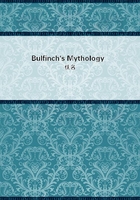
第62章
Pirithous had made an irruption into the plain of Marathon, and carried off the herds of the king of Athens. Theseus went to repel the plunderers. The moment Pirithous beheld him, he was seized with admiration; he stretched out his hand as a token of peace, and cried, "Be judge thyself, what satisfaction dost thou require?" "Thy friendship," replied the Athenian, and they swore inviolable fidelity. Their deeds corresponded to their professions, and they ever continued true brothers in arms. Each of them aspired to espouse a daughter of Jupiter. Theseus fixed his choice on Helen, then but a child, afterwards so celebrated as the cause of the Trojan war, and with the aid of his friend he carried her off. Pirithous aspired to the wife of the monarch of Erebus; and Theseus, though aware of the danger, accompanied the ambitious lover in his descent to the underworld. But Pluto seized and set them on an enchanted rock at his palace gate, where they remained till Hercules arrived and liberated Theseus, leaving Pirithous to his fate.
After the death of Antiope, Theseus married Phaedra, daughter of Minos, king of Crete. Phaedra saw in Hippolytus, the son of Theseus, a youth endowed with all the graces and virtues of his father, and of an age corresponding to her own. She loved him, but he repulsed her advances, and her love was changed to hate.
She used her influence over her infatuated husband to cause him to be jealous of his son, and he imprecated the vengeance of Neptune upon him. As Hippolytus was one day driving his chariot along the shore, a sea-monster raised himself above the waters, and frightened the horses so that they ran away and dashed the chariot to pieces. Hippolytus was killed, but by Diana's assistance Aesculapius restored him to life. Diana removed Hippolytus from the power of his deluded father and false stepmother, and placed him in Italy under the protection of the nymph Egeria.
Theseus at length lost the favor of his people, and retired to the court of Lycomedes, king of Scyros, who at first received him kindly, but afterwards treacherously slew him. In a later age the Athenian general Cimon discovered the place where his remains were laid, and caused them to be removed to Athens, where they were deposited in a temple called the Theseum, erected in honor of the hero.
The queen of the Amazons whom Theseus espoused is by some called Hippolyta. That is the name she bears in Shakespeare's Midsummer Night's Dream, the subject of which is the festivities attending the nuptials of Theseus and Hippolyta.
Mrs. Hemans has a poem on the ancient Greek tradition that the "Shade of Theseus" appeared strengthening his countrymen at the battle of Marathon.
Mr. Lewis Morris has a beautiful poem on Helen, in the Epic of Hades. In these lines Helen describes how she was seized by Theseus and his friend:
----------"There came a night When I lay longing for my love, and knew Sudden the clang of hoofs, the broken doors, The clash of swords, the shouts, the groans, the stain Of red upon the marble, the fixed gaze Of dead and dying eyes, that was the time When first I looked on death, and when I woke >From my deep swoon, I felt the night air cool Upon my brow, and the cold stars look down, As swift we galloped o'er the darkling plain And saw the chill sea-glimpses slowly wake, With arms unknown around me. When the dawn Broke swift, we panted on the pathless steeps, And so by plain and mountain till we came to Athens, ----------."Theseus is a semi-historical personage. It is recorded of him that he united the several tribes by whom the territory of Attica was then possessed into one state, of which Athens was the capital. In commemoration of this important event, he instituted the festival of Panathenaea, in honor of Minerva, the patron deity of Athens. This festival differed from the other Grecian games chiefly in two particulars. It was peculiar to the Athenians, and its chief feature was a solemn procession in which the Peplus or sacred robe of Minerva was carried to the Parthenon, and suspended before the statue of the goddess. The Peplus was covered with embroidery, worked by select virgins of the noblest families in Athens. The procession consisted of persons of all ages and both sexes. The old men carried olive-branches in their hands, and the young men bore arms. The young women carried baskets on their heads, containing the sacred utensils, cakes, and all things necessary for the sacrifices.
The procession formed the subject of the bas-reliefs by Phidias which embellished the outside of the temple of the Parthenon. Aconsiderable portion of these sculptures is now in the British museum among those known as the "Elgin marbles."OLYMPIC AND OTHER GAMES
We may mention here the other celebrated national games of the Greeks. The first and most distinguished were the Olympic, founded, it was said , by Jupiter himself. They were celebrated at Olympia in Elis. Vast numbers of spectators flocked to them from every part of Greece, and from Asia, Africa, and Sicily.
They were repeated every fifth year in midsummer, and continued five days. They gave rise to the custom of reckoning time and dating events by Olympiads. The first Olympiad is generally considered as corresponding with the year 776 B.C. The Pythian games were celebrated in the vicinity of Delphi, the Isthmian on the Corinthian isthmus, the Nemean at Nemea, a city of Argolis.
The exercises in these games were of five sorts: running, leaping, wrestling, throwing the quoit, and hurling the javelin, or boxing. Besides these exercises of bodily strength and agility, there were contests in music, poetry, and eloquence.
Thus these games furnished poets, musicians, and authors the best opportunities to present their productions to the public, and the fame of the victors was diffused far and wide.
DAEDALUS